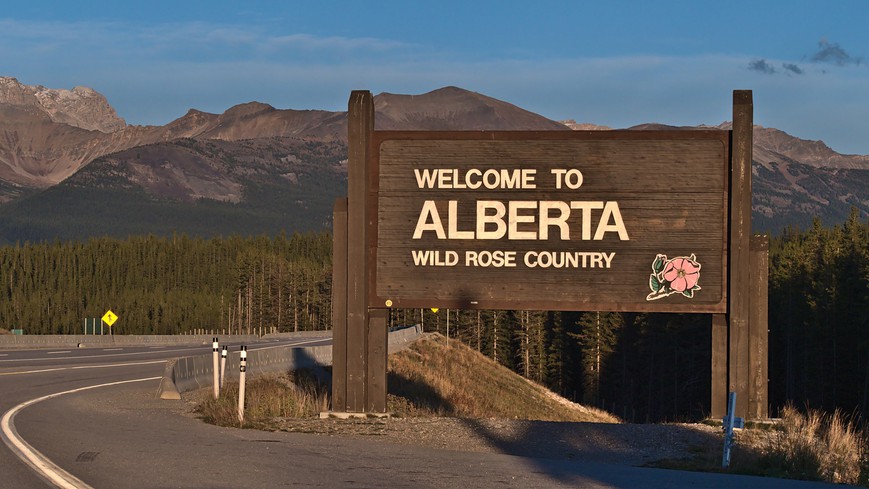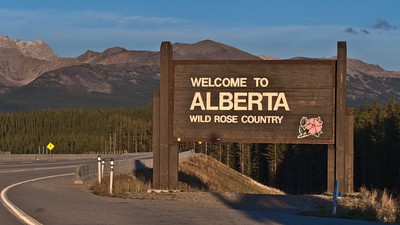

- Alberta has reformed its igaming laws to potentially allow third party operators to offer real money online poker.
- Alberta’s official provincial igaming site, PlayAlberta, does not currently offer poker.
- Alberta may share liquidity with Ontario, enabling operators to tap into a larger player pool.
- BetMGM and PokerStars have already started lobbying for Alberta to overhaul its igaming setup.
Up until now, most of the conversation about real money online poker in Canada would involve Ontario — Canada’s most populous province, and the only one with a regulated market for real money online poker.
That dynamic could be changing. Alberta recently made reforms to its igaming laws that could potentially open the province to third party operators for real money online poker — operators like GGPoker, PokerStars, and maybe even BetRivers Poker once it finally launches.
Alberta has been floating the idea of scrapping its current igaming setup (where the provincial lottery is the only officially legal igaming option) in favor of one that closely resembles Ontario’s. Alberta could also be eyeing an agreement to share liquidity with its much larger counterpart.
We break down everything you need to know:
What’s this all about?
Lawmakers in Alberta passed legislation giving the provincial government some of the same powers as the regulator, the Alberta Gaming, Liquor and Cannabis Commission (AGLC).
Okay. Why is this important?
The change is part of a comprehensive overhaul of the province’s gaming laws, something that the government of Premier Danielle Smith agreed to spend $1 million on last March. It’s also the clearest sign yet that Alberta is serious about creating regulated igaming markets similar to those in Ontario — and that includes real money online poker.
Doesn’t Alberta already have real money online poker through the provincial lottery?
No. The official provincial igaming site, PlayAlberta, offers online casino gaming, sports betting, lottery, and other games, but it does not offer peer-to-peer online poker.
What are Alberta’s plans?
It appears that the government intends to tweak the province’s Gaming, Liquor and Cannabis Act (GLCA) by allowing it to issue interactive gaming licenses to third party operators. Those operators would then compete against the official provincial igaming site, PlayAlberta.
Smith’s regime put Dale Nally, Minister of Service Alberta and Red Tape Reduction, in charge of reviewing the GLCA. In an exclusive to Poker Industry PRO, Nally’s press secretary, Brandon Aboultaif, confirmed that the minister has started meetings with First Nations this month and that those talks would continue through July.
Does this mean Alberta could get regulated real money online poker? 😯
We think so, yes! And there are two main reasons to be optimistic that this could happen soon:
- The changes made to the GLCA so far
- Aboultaif’s comments from the PRO interview
Okay, let’s start with the GLCA. What’s been changed there?
The legislation that was passed, Bill 16, made some small (but important) changes to Sections 43 and 44 of the GLCA.
Section 43 previously stipulated that the AGLC “may conduct and manage provincial lotteries on behalf of the Government of Alberta either alone or in conjunction with the government of another province or territory.” But Bill 16 inserted language that would give Nally, and any of his successors in his ministerial role, the same powers.
With Section 44, it stated previously that the AGLC “may, on behalf of the Government of Alberta, enter into agreements with the governments of any other provinces or territories or their agents regarding the conduct and management of a provincial lottery within Alberta and those other provinces or territories.” Government ministers now have that authority, too.
Gotcha. And what were the comments from the interview?
PRO asked Aboultaif point blank: Do these changes mean Alberta intends to set up a regulated market for real money online poker similar to Ontario, and will Alberta share liquidity with other Canadian provinces or the international market?
To which Aboultaif replied:
“As part of our policy development process, and as we look at moving to a more open regulated online gaming market, we will continue to examine best practices from other jurisdictions, including Ontario. With regards to the questions about licensing and [shared] liquidity, we will engage with our stakeholders as part of the policy development process — no decisions have been made.”
Translation? Stay tuned.
That does sound promising! What was that part about international liquidity? 🌎
Before Ontario launched its regulated market for real money online poker in April 2022, it ordered operators like GGPoker and PokerStars to exit the gray market first. They did, and Ontario has been a segregated market ever since.
Now, regulators in Ontario want to know if the province could allow operators to rejoin the international marketplace, or if doing so would violate the federal Criminal Code. The Court of Appeal of Ontario, the highest court in the province, is scheduled to hear arguments in November.
Since this involves the federal Criminal Code, we expect that the Supreme Court of Canada will get involved at some point. But if Ontario gets the green light, we expect operators there will be able to rejoin the international market. Operators in Alberta would be allowed to do the same.
Most importantly — Ontario and Alberta would presumably be able to share liquidity with each other. If that happens, you could see all six of the operators currently live in Ontario — 888poker, BetMGM Poker, Bwin Poker, GGPoker, PartyPoker, and PokerStars — consider deploying in Alberta, too.
Have any real money poker operators expressed an interest in launching in Alberta?
Actually, government records show BetMGM and PokerStars started lobbying the province:to overhaul its igaming setup last March. But it’s hard to imagine that 888poker, Bwin Poker, GGPoker, and PartyPoker wouldn’t be interested in Wild Rose Country.
With a population of about 4.4 million, Alberta would be a small market for real money online poker. Operators would be more interested in the province if it had shared liquidity — with Ontario or otherwise.
Wait, what is “Wild Rose Country?”
A nickname for Alberta. Wild roses grow everywhere in the province. 🌹

